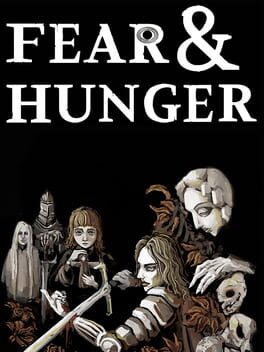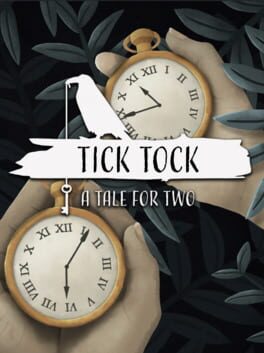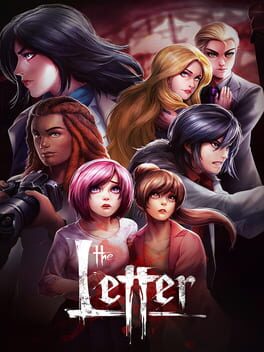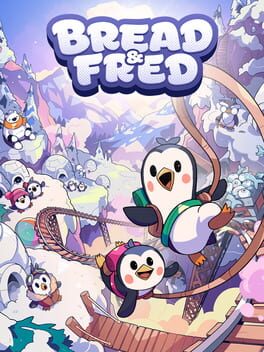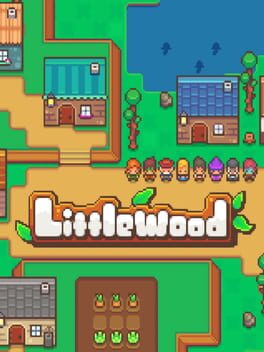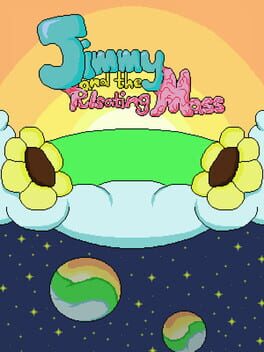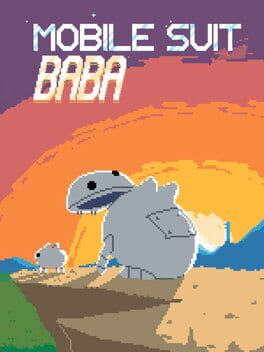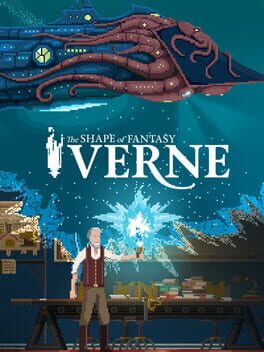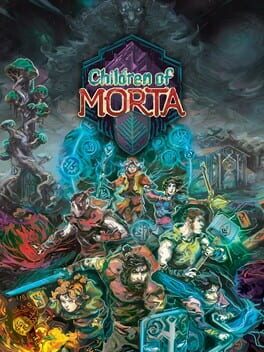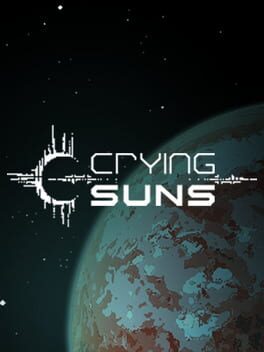Katsono
235 Reviews liked by Katsono
Celeste
2018
Paradise Killer
2020
Remember way way back, before Persona 5 and Dark Souls, when Atlus and From Software were making weird niche games that rarely left Japan and sold only like 10,000 copies? Because Paradise Killer will bring all those memories rushing back. It's a zany, colorful blast from the past that would feel right at home on Dreamcast.
Although it's often compared to Phoenix Wright, Paradise Killer has more in common with collectathon platformers. You spend most of your time running around Island 24, gathering clues, collecting blood vials, and interrogating suspects. It's a true open-world game -- there are only a few progress-blocking gates, and most of them can be worked around in multiple ways. You can also end the game at any point. Once you feel you've collected enough evidence, you can return to the judge and start the trial.
Being an open-world game, Paradise Killer exhibits the same pros and cons that are common in the genre. Early on, when the world was still full of collectibles, I had a lot of fun running around, jumping up mountains, and chatting with random characters. But as I neared the end and there were only a few unresolved mysteries and uncollected items left, my patience began to wane as I aimlessly ran around the map in search of the missing piece. Ultimately I was able to find everything without resorting to checking a guide, but not before feeling a twinge of boredom.
Naturally, the game's open-world nature impacts not only the gameplay, but the narrative as well. In my case, I stumbled upon a very big piece of evidence right at the end of the game -- it was literally the last thing I found before taking my case to trial. Because my playthrough unfolded the way it did, this revelation led to a serious sense of deus ex machina. It was like the final piece clicking into place and it felt all too convenient. If I'd found it earlier and had been given time to mentally fit it into my investigative puzzle, perhaps it wouldn't have felt like such an abrupt contrivance. I suppose that's just the nature of open-world games. Everyone's experience will be a bit different, for better or worse.
The final trial is also relatively straightforward. If you're expecting the twists and turns of an Ace Attorney game, you'll be disappointed. Despite that, however, the character are well written and the story that's here is enjoyable enough.
Finally, I must note that the soundtrack is an absolute banger. If anything, I think it's underutilized -- the songs are played as background music when they really deserve more time in the spotlight.
Anyhow, that's Paradise Killer in a nutshell. Come for the platforming and vaporwave vibes, stay for the characters. I'll see you in Perfect 25.
Although it's often compared to Phoenix Wright, Paradise Killer has more in common with collectathon platformers. You spend most of your time running around Island 24, gathering clues, collecting blood vials, and interrogating suspects. It's a true open-world game -- there are only a few progress-blocking gates, and most of them can be worked around in multiple ways. You can also end the game at any point. Once you feel you've collected enough evidence, you can return to the judge and start the trial.
Being an open-world game, Paradise Killer exhibits the same pros and cons that are common in the genre. Early on, when the world was still full of collectibles, I had a lot of fun running around, jumping up mountains, and chatting with random characters. But as I neared the end and there were only a few unresolved mysteries and uncollected items left, my patience began to wane as I aimlessly ran around the map in search of the missing piece. Ultimately I was able to find everything without resorting to checking a guide, but not before feeling a twinge of boredom.
Naturally, the game's open-world nature impacts not only the gameplay, but the narrative as well. In my case, I stumbled upon a very big piece of evidence right at the end of the game -- it was literally the last thing I found before taking my case to trial. Because my playthrough unfolded the way it did, this revelation led to a serious sense of deus ex machina. It was like the final piece clicking into place and it felt all too convenient. If I'd found it earlier and had been given time to mentally fit it into my investigative puzzle, perhaps it wouldn't have felt like such an abrupt contrivance. I suppose that's just the nature of open-world games. Everyone's experience will be a bit different, for better or worse.
The final trial is also relatively straightforward. If you're expecting the twists and turns of an Ace Attorney game, you'll be disappointed. Despite that, however, the character are well written and the story that's here is enjoyable enough.
Finally, I must note that the soundtrack is an absolute banger. If anything, I think it's underutilized -- the songs are played as background music when they really deserve more time in the spotlight.
Anyhow, that's Paradise Killer in a nutshell. Come for the platforming and vaporwave vibes, stay for the characters. I'll see you in Perfect 25.
Fear & Hunger
2018
There are three ways to approach Fear & Hunger. Yes, this is an overly reductive take, but bear with me.
The first approach is casual. Load it up, wander around, lose your shit at the first sight of a stinger, die early, and then quit and experience the game vicariously via YouTube. Approached this way, F&H is actually a great experience. It has a unique aesthetic and broaches topics that rarely appear in the medium of games.
The second approach is hardcore. Play for a while, die a lot, double down, study the wiki, learn the best strategies, take advantage of the game’s secrets, and become an F&H expert. For gamers who want to dig in deep, F&H can also be an excellent game. It offers all sorts of mechanics, many of which are hidden, for tenacious players to discover and exploit. Likewise, it’s packed with rewarding secrets for those willing to put in the work. Notably, players who play this way are also the ones who make captivating Let’s Play videos of the game.
Which brings us to the third way, a middle approach which falls between the first two. More dedicated than casual, but not as deep-diving as hardcore. This is where I fall in the F&H spectrum, and as you probably guessed from the two-star rating I slapped on this review, I did not have a good time.
The biggest issue for me is time. Fear & Hunger is a slow game. Your character walks like they’re wearing stone boots. Yes, there are ways to move faster, but you won’t find them unless you engage in lots of trial and error or read a guide.
The slow pace is exacerbated by the fact that life or death is often predicated a literal coinflip. Yes, there are many ways to avoid coinflips – methods which you can learn via extensive trial and error or guides. If you’re really crafty, you can even find a way to turn the coin flips in your favor – but it’s a secret you’re unlikely to discover without the help of a guide.
Personally, I found that the slow pace and chance-based deaths worked against the horror elements. Horror works best when there’s a sense of relief every now and then, but here it’s all tension all the time. Likewise for the obscenity: The game turns the flesh up to 11 early, and after ten or fifteen minutes I was completely inured to the depravity. When everything is obscene, nothing is.
After a few failed runs, I grew tired of the tedium. Under most circumstances I would’ve just dropped the game, but it was the game of the month for a group I’m in, so I felt compelled to finish it. So instead of quitting I downloaded a “Game Genie-fied” version (whoops – my age is showing) of the game that gave me lots of extra weapons and items and plowed my way through.
A few hours later, I limped across the finish line. Burnt out as I was, I was still feeling curious about why everyone else loves this game, so I jumped over to YouTube and watched a few Let’s Plays. Taking a step back like this, extricating myself from the brutality, helped me appreciate the game more. The art is lovely, and there are all sorts of cool mechanics that I didn’t even know existed.
That’s good and all. But it doesn’t change the fact that my experience playing the game was less Fear & Hunger and more Tedium & Frustration.
The first approach is casual. Load it up, wander around, lose your shit at the first sight of a stinger, die early, and then quit and experience the game vicariously via YouTube. Approached this way, F&H is actually a great experience. It has a unique aesthetic and broaches topics that rarely appear in the medium of games.
The second approach is hardcore. Play for a while, die a lot, double down, study the wiki, learn the best strategies, take advantage of the game’s secrets, and become an F&H expert. For gamers who want to dig in deep, F&H can also be an excellent game. It offers all sorts of mechanics, many of which are hidden, for tenacious players to discover and exploit. Likewise, it’s packed with rewarding secrets for those willing to put in the work. Notably, players who play this way are also the ones who make captivating Let’s Play videos of the game.
Which brings us to the third way, a middle approach which falls between the first two. More dedicated than casual, but not as deep-diving as hardcore. This is where I fall in the F&H spectrum, and as you probably guessed from the two-star rating I slapped on this review, I did not have a good time.
The biggest issue for me is time. Fear & Hunger is a slow game. Your character walks like they’re wearing stone boots. Yes, there are ways to move faster, but you won’t find them unless you engage in lots of trial and error or read a guide.
The slow pace is exacerbated by the fact that life or death is often predicated a literal coinflip. Yes, there are many ways to avoid coinflips – methods which you can learn via extensive trial and error or guides. If you’re really crafty, you can even find a way to turn the coin flips in your favor – but it’s a secret you’re unlikely to discover without the help of a guide.
Personally, I found that the slow pace and chance-based deaths worked against the horror elements. Horror works best when there’s a sense of relief every now and then, but here it’s all tension all the time. Likewise for the obscenity: The game turns the flesh up to 11 early, and after ten or fifteen minutes I was completely inured to the depravity. When everything is obscene, nothing is.
After a few failed runs, I grew tired of the tedium. Under most circumstances I would’ve just dropped the game, but it was the game of the month for a group I’m in, so I felt compelled to finish it. So instead of quitting I downloaded a “Game Genie-fied” version (whoops – my age is showing) of the game that gave me lots of extra weapons and items and plowed my way through.
A few hours later, I limped across the finish line. Burnt out as I was, I was still feeling curious about why everyone else loves this game, so I jumped over to YouTube and watched a few Let’s Plays. Taking a step back like this, extricating myself from the brutality, helped me appreciate the game more. The art is lovely, and there are all sorts of cool mechanics that I didn’t even know existed.
That’s good and all. But it doesn’t change the fact that my experience playing the game was less Fear & Hunger and more Tedium & Frustration.
A decent little asynchronous puzzle game for two people, no internet required. Solve a variety of puzzles using input from one another on things that only the other person can see.
My favorite part of it is actually not the puzzles themselves (which are standard fare for this kind of game) but a recurring theme in which things relevant to the story needed to be read with the other person together, as both of you would only have part of the sentence, such as a news article.
The art is nice and the puzzles are decent, but the game in general is a little short (an hour) and the story is a little too vague to be gripping. I think that a vague story such as this one would work better in a game in which you are not constantly talking to another person -- it's hard to think through any narrative in any kind of depth when you're focused on solving puzzles with your real life friend. Perhaps if your friend naturally gravitates towards wanting to explicitly discuss the story while you play, this would work better, but the design decision to rely on your friend to provide that kind of experience isn't a wise one on the developers' part if they want most people to properly consider their story.
That being said, the atmosphere is interesting and the game is entertaining for its hour of run time, and I had fun playing it.
3 - Decent: An acceptable, playable game with notable appeal
My favorite part of it is actually not the puzzles themselves (which are standard fare for this kind of game) but a recurring theme in which things relevant to the story needed to be read with the other person together, as both of you would only have part of the sentence, such as a news article.
The art is nice and the puzzles are decent, but the game in general is a little short (an hour) and the story is a little too vague to be gripping. I think that a vague story such as this one would work better in a game in which you are not constantly talking to another person -- it's hard to think through any narrative in any kind of depth when you're focused on solving puzzles with your real life friend. Perhaps if your friend naturally gravitates towards wanting to explicitly discuss the story while you play, this would work better, but the design decision to rely on your friend to provide that kind of experience isn't a wise one on the developers' part if they want most people to properly consider their story.
That being said, the atmosphere is interesting and the game is entertaining for its hour of run time, and I had fun playing it.
3 - Decent: An acceptable, playable game with notable appeal
I’m not sure if it’s a new trend or if I’m just late to the party, but recently I’ve noticed a lot of asymmetrical escape room games hitting the scene. What makes these interesting is that, despite being multiplayer games that are played on multiple devices, they don’t employ any sort of netcode. The only data transferred between the devices goes through the players first. In effect, the players themselves are the link between devices.
In the case of Tick Tock: A Tale for Two, players explore the game world, discovering puzzles, passing clues back and forth, and unlocking secrets together. Hints in Player One’s game serve as solutions to Player Two’s puzzles and vice versa, so to solve the game’s mysteries you must exchange information. Whether this is done in person or over a voice chat is up to you. Screen sharing is discouraged but serves as a handy backup should your language abilities fail you.
In terms of puzzle mechanics, Tick Tock is similar to other games in its genre, such as Agent A: A Puzzle in Disguise and The Room, although I’d say it feels less tactile than those two. Many puzzles involve words or pictures that one player has to describe to the other. Because of this, people playing in a language that isn’t their own may struggle a bit.
While the game is fun in and of itself, the real draw is what happens outside of the screen. Working through the trials and tribulations within is bound to reveal the underlying relationship dynamics between you and the other player. Who’s in charge? Who’s cleverer? Who likes to screencheat? Who spends too much time playing games? (Hint: It’s not my wife.) Seeing how the game made my partner and I interact with each other was often more interesting than the puzzles themselves. It’s this chance for novel interaction that, despite a short playtime and somewhat underwhelming puzzles, make Tick Tock worth a play.
In the case of Tick Tock: A Tale for Two, players explore the game world, discovering puzzles, passing clues back and forth, and unlocking secrets together. Hints in Player One’s game serve as solutions to Player Two’s puzzles and vice versa, so to solve the game’s mysteries you must exchange information. Whether this is done in person or over a voice chat is up to you. Screen sharing is discouraged but serves as a handy backup should your language abilities fail you.
In terms of puzzle mechanics, Tick Tock is similar to other games in its genre, such as Agent A: A Puzzle in Disguise and The Room, although I’d say it feels less tactile than those two. Many puzzles involve words or pictures that one player has to describe to the other. Because of this, people playing in a language that isn’t their own may struggle a bit.
While the game is fun in and of itself, the real draw is what happens outside of the screen. Working through the trials and tribulations within is bound to reveal the underlying relationship dynamics between you and the other player. Who’s in charge? Who’s cleverer? Who likes to screencheat? Who spends too much time playing games? (Hint: It’s not my wife.) Seeing how the game made my partner and I interact with each other was often more interesting than the puzzles themselves. It’s this chance for novel interaction that, despite a short playtime and somewhat underwhelming puzzles, make Tick Tock worth a play.
Overall a really fun asymmetric puzzle game that interestingly doesn't require an internet connection. The game is short but sweet, and everything in it is meaningful, no red herring's you'll waste countless precious minutes or hours on. The puzzle's aren't overly difficult, and some are quite easy, but there are always a few that force you to think a little more outside the box. The story is genuinely very compelling, and I won't spoil it, but believe me when I say the puzzles were fun, but I was very much driven to complete them for the further insight into the main story.
Great to play with a friend who also likes puzzles~
Great to play with a friend who also likes puzzles~
The Letter
2017
I've decided that the only accurate way to explain how abysmal the prose of this game can get is writing a review that mimicks the average text within the game. I'll do my best.
Sooo...
This is technically a Horror Visual Novel. And you guys know how those thingies work, right? C'mon, people, it's in the title!
It's Visual, so you got pictures in it. It's a Novel, so you got lots of words in it. (Not that I mind, you see! I like reading! I'm such a normal and relatable but also regularly adorkable girl!) But the Horror part? That's supposed to be its selling point, right? So, do I think they actually managed it? (I sigh, then unleash 10 more lines of rhetorical questions and useless anecdotes that neither flesh out nor make any of what I'm saying more interesting.)
Unfortunately basically nothing interesting happened in the two hours I could handle playing this before the urge to smash my head against a wall got too strong for it to be safe to keep playing. (I roll my eyes. Sheeesh, this got dark.) Unless you consider the silly jumpscares in the five minutes of actual Horror sandwiched between crappy banter something. (I shrug.)
Oh well, I suppose I'm giving it an extra star for its production value. Part of me can respect this game's ambition. The other part? Well... The other part is very concerned about the abnormally large amount of poor, repetitive writing all those poor, repetitive voice actors were subjected to. Yikes. I hope they got hazard pay!
That's it. There's only so much "I rolled my eyes", "I shrugged" and other YA blathering a woman past her thirties can take. This game feels like one of those 1000k words fanfiction that got this big not because a lot of things happen but because the author doesn't know shit about editing and just puts anything that comes to their mind in it. It's unbearable, genuinely one of the worst VNs I've ever played. If your game is this reliant on writing, for fuck's sake, hone your goddamn craft.
Sooo...
This is technically a Horror Visual Novel. And you guys know how those thingies work, right? C'mon, people, it's in the title!
It's Visual, so you got pictures in it. It's a Novel, so you got lots of words in it. (Not that I mind, you see! I like reading! I'm such a normal and relatable but also regularly adorkable girl!) But the Horror part? That's supposed to be its selling point, right? So, do I think they actually managed it? (I sigh, then unleash 10 more lines of rhetorical questions and useless anecdotes that neither flesh out nor make any of what I'm saying more interesting.)
Unfortunately basically nothing interesting happened in the two hours I could handle playing this before the urge to smash my head against a wall got too strong for it to be safe to keep playing. (I roll my eyes. Sheeesh, this got dark.) Unless you consider the silly jumpscares in the five minutes of actual Horror sandwiched between crappy banter something. (I shrug.)
Oh well, I suppose I'm giving it an extra star for its production value. Part of me can respect this game's ambition. The other part? Well... The other part is very concerned about the abnormally large amount of poor, repetitive writing all those poor, repetitive voice actors were subjected to. Yikes. I hope they got hazard pay!
That's it. There's only so much "I rolled my eyes", "I shrugged" and other YA blathering a woman past her thirties can take. This game feels like one of those 1000k words fanfiction that got this big not because a lot of things happen but because the author doesn't know shit about editing and just puts anything that comes to their mind in it. It's unbearable, genuinely one of the worst VNs I've ever played. If your game is this reliant on writing, for fuck's sake, hone your goddamn craft.
Bread & Fred
2023
Bread & Fred
2023
Really good co-op game! Not meant to be a noteworthy standalone game, so it isn't, but as a game to have some fun with a friend, it's really good. Definitely recommend it for that, it's great!
I played it using the checkpoints, I imagine it would have been way less fun otherwise, so I recommend that unless you and your friend are the types who find it fun and satisfying to rage and grind for ages before finally coming out on top. For simple fun where you and your friend are just laughing together at your mistakes and trying to strategize for each obstacle, use the checkpoints.
I played it using the checkpoints, I imagine it would have been way less fun otherwise, so I recommend that unless you and your friend are the types who find it fun and satisfying to rage and grind for ages before finally coming out on top. For simple fun where you and your friend are just laughing together at your mistakes and trying to strategize for each obstacle, use the checkpoints.
Littlewood
2019
Very cute, but seems to get quite repetitive, too repetitive. After I recently came back to an old file, I quickly realized there was a ton to do. The goal felt locked behind a ton of grinding. To get time to progress, you have to be doing something or else the time will stay the same forever. This could be considered a plus or minus depending on who you talk to, but I don’t really like this system (other than the fact you have a chance to go home and sleep rather quickly).
But I suppose the game is a nice little time waster or mindless game to play otherwise
But I suppose the game is a nice little time waster or mindless game to play otherwise
Around every Steam sale, I check through my library and give an hour or two to a forgotten game from years past, just so I can mark it off the backlog and get interested in the new things. That was my plan going into Jimmy and the Pulsating Mass.
After about 58 hours, I've 100% completed Jimmy and the Pulsating Mass.
When a narrative tries to tell an adult story through a child's perspective or, in this case, a child's dream, there's a risk of being a little condescending. Overexplaining a story and exposing a need to reveal the "truth" of the story, rather than staying within the realm of magic. And if I gave you the broad strokes plot of Jimmy, I think the game could come off as a little emotionally manipulative. But what works about Jimmy and the Pulsating Mass is how fully it commits to its presentation and execution. It never strays from the idea that even if the things we see aren't "real", it matters to Jimmy and so it carries emotional weight. When it slowly unpacks the layers of all its characters, it shows their flaws without any judgement or criticism coloring its storytelling. Jimmy's brother Buck is a bully and a jerk and you get to see plenty of instances of how Buck's abuse shapes Jimmy's idea of self-worth. Yet, you also see Buck at his most vulnerable. Its buried deep within hidden dungeons, but you get to see these little moments of brotherly love that Jimmy treasures. It doesn't shy away from how Jimmy's family have failed him or themselves, but it asks you to feel the same empathy for them that Jimmy feels for his family.
As an indie rpg, its also just jampacked with content. There's two or three hidden dungeons for all five of the continents you explore in Jimmy's mindscape. Each dungeons reflects one of Jimmy's fears, from strangers to heights or even complicated math problems. There's minigames and bonus sidequests and hidden little storylines everywhere. And exploring these dungeons and games rewards you, either with better weapons and gear or new information about Jimmy and his struggles. Its one of the most ambitious indie games I've ever seen and its delighted in sharing everything it can with you. I despise playing rpgs on my keyboard and I couldn't put this game down for a whole week. A masterpiece of storytelling and gaming.
~Mid-game spoiler rambling:~
The moment the true brilliance of the game really shines is in the Blood March area, a continent themed around various horror movies and Jimmy's forgotten toys. One of your party members is the creepy, clingy Jonathan Bear. He encourages Jimmy to leave his family, he's spiteful to minor obstacles, and he's obsessive and terrifying. Jimmy, in his only really malevolent act as a silent protagonist, shoves Jonathon into a furnace to finally get rid of him.
And Jonathon's voice speaks out of the furnace.
"Do you think it would be that easy to forget? I'll NEVER let you forget. What your greedy little hands did to get me. The lies you told to hold onto me. You'll never forget."
And the true horror of how a young kid's silly selfish decision has become a burning, agonizing guilt in his chest just expands into this devastating level about childhood products and how we cling to them or outgrow them. This game is masterful.
After about 58 hours, I've 100% completed Jimmy and the Pulsating Mass.
When a narrative tries to tell an adult story through a child's perspective or, in this case, a child's dream, there's a risk of being a little condescending. Overexplaining a story and exposing a need to reveal the "truth" of the story, rather than staying within the realm of magic. And if I gave you the broad strokes plot of Jimmy, I think the game could come off as a little emotionally manipulative. But what works about Jimmy and the Pulsating Mass is how fully it commits to its presentation and execution. It never strays from the idea that even if the things we see aren't "real", it matters to Jimmy and so it carries emotional weight. When it slowly unpacks the layers of all its characters, it shows their flaws without any judgement or criticism coloring its storytelling. Jimmy's brother Buck is a bully and a jerk and you get to see plenty of instances of how Buck's abuse shapes Jimmy's idea of self-worth. Yet, you also see Buck at his most vulnerable. Its buried deep within hidden dungeons, but you get to see these little moments of brotherly love that Jimmy treasures. It doesn't shy away from how Jimmy's family have failed him or themselves, but it asks you to feel the same empathy for them that Jimmy feels for his family.
As an indie rpg, its also just jampacked with content. There's two or three hidden dungeons for all five of the continents you explore in Jimmy's mindscape. Each dungeons reflects one of Jimmy's fears, from strangers to heights or even complicated math problems. There's minigames and bonus sidequests and hidden little storylines everywhere. And exploring these dungeons and games rewards you, either with better weapons and gear or new information about Jimmy and his struggles. Its one of the most ambitious indie games I've ever seen and its delighted in sharing everything it can with you. I despise playing rpgs on my keyboard and I couldn't put this game down for a whole week. A masterpiece of storytelling and gaming.
~Mid-game spoiler rambling:~
The moment the true brilliance of the game really shines is in the Blood March area, a continent themed around various horror movies and Jimmy's forgotten toys. One of your party members is the creepy, clingy Jonathan Bear. He encourages Jimmy to leave his family, he's spiteful to minor obstacles, and he's obsessive and terrifying. Jimmy, in his only really malevolent act as a silent protagonist, shoves Jonathon into a furnace to finally get rid of him.
And Jonathon's voice speaks out of the furnace.
"Do you think it would be that easy to forget? I'll NEVER let you forget. What your greedy little hands did to get me. The lies you told to hold onto me. You'll never forget."
And the true horror of how a young kid's silly selfish decision has become a burning, agonizing guilt in his chest just expands into this devastating level about childhood products and how we cling to them or outgrow them. This game is masterful.
Mobile Suit Baba
2023
When this game is really humming, it manages to hit a fantastic balance point where the levels are open-ended enough to feel like a tactics game where you're adapting to circumstances rather than a puzzle game where you're finding the One Right Approach, while still having just enough puzzle seasoning to scratch a similar itch as Baba Is You. There are times when it strays too far from this one way or the other (usually in the direction of getting too puzzly and putting me off in the same way Baba always does), but when it hits it hits. The visuals and writing are also extremely charming, particularly the concept that every being in this world has a mech which is just exactly a copy of them at a much larger scale.
It’s a bit hard to describe Verne. It’s a mix of point and click adventure mixed with some puzzles and stealth sections. It focuses heavily on the story, lore and exploration. Although the levels are pretty linear, there are lots of collectibles that are meant to flesh out the world & characters. The puzzles are not difficult, they’re fun and add a bit of variety. They focus on observation skills. There are about 3-4 stealth sections that are not really long. There are also some QTE sections in critical moments but those can be turned off if you’re not a fan. What you get is an entertaining game that feels like a movie. This is emphasised with the camera direction and the game being fully voiced. The graphics were very impressive and looked great on a 1440p monitor. I’m so happy and grateful the game is fully voiced. I personally love Verne’s voice. The rest weren’t as good sometimes but I still prefer voice acting instead of reading text with a game focused on story like this one.
Overall I had a good time getting 100% in 6.5 hours. I love the world created here. The developers were very ambitious and tried their best with the budget they had. Each section is full of details. There’s little to complain about, especially with the asking price. I paid around €10 and definitely think it’s worth it.
Overall I had a good time getting 100% in 6.5 hours. I love the world created here. The developers were very ambitious and tried their best with the budget they had. Each section is full of details. There’s little to complain about, especially with the asking price. I paid around €10 and definitely think it’s worth it.
Children of Morta
2019
Had a blast playing through this with my partner but think I would have enjoyed less solo. The pixel art is great and the characters are super endearing,. Combat is mostly good with a few minor nitpicks, but it misses the fun randomisation aspect that really makes me want to come back to these games again. I often didnt feel a significant difference between runs that would have kept me more engaged (although the reward of some lore or a cutscene is nice, and i'm not usually one for that)
Crying Suns
2019
TL:DR is that this is a good and fun game that has quite a few similarities to FTL, and it IS basically what would happen if FTL decided to focus more on story, but doesn't quite deliver as well in the replay department.
I'll start with the good: as I said above, Crying Suns is quite a good game with an actual story to back it up. Sure, it's a bit of a darker, more apocalyptic vision of the future (that I will not spoil) , but it's miles ahead of FTL's, which basically boils down to "Star Wars Episode IV: A New Hope." And this is backed up by a strategic gameplay with the same "tactical pause and strategy" feel of FTL, but takes its own spin on it. Rather than focusing on shuffling your small crew around to pummel the enemy vessel with weapons (mainly lasers), you're instead playing around with your squadrons of ships on a hexagonal grid with a very rock-paper-scissors core (or the weakness triangle, minus cruisers). It feels tactical and fun, and does have more nuance than simply "this counters that" because of some special gimmicks and properties to said ships. The upgrade system per run is also done well in its own way, and the various ship types (of which I have played two) offers pretty varied approaches to combat.
Now for the bad, and that mainly boils down to what it provides in terms of replay value. The big one is that there's a notable lack of "secret hunting" that incentivizes replays. FTL has its ship unlocks that can be accelerated by certain special events or, if you can't be bothered, demands playing around with all ship types and hunting for achievements. In Crying Suns, that does not exist - you can unlock ALL ship types just by playing through the game's story (which is what I did with the starter battleship). And while the story is good, is has quite a LOT of dialogue boxes (which, even on a first playthrough, get pretty tedious and easy to lose track of the story). It's not quite to the level where the "roguelike" aspect feels shoehorned in, but it definitely kept me from playing too far after I completed the main story and all six of its chapters. And as for the difficulty, it seems a bit too easy, as in "HARD" mode feels as difficult as "Normal" mode in FTL, and more challenge generally translates to ore replay value.
On a side note, I would like to draw special attention to Crying Sun's soundtrack. It's OK - perfectly fitting for the type of atmosphere it tries to give, but to me, it lacks the "magic" that makes it fantastic like Ben Prunty's soundtrack for FTL.
Even with all that, it's still a good game. I think you'll get plenty of enjoyment if you treat this game less like a typical roguelike you play over and over for completion but rather a tactics-based singleplayer campaign with roguelike elements sprinkled in.
I'll start with the good: as I said above, Crying Suns is quite a good game with an actual story to back it up. Sure, it's a bit of a darker, more apocalyptic vision of the future (that I will not spoil) , but it's miles ahead of FTL's, which basically boils down to "Star Wars Episode IV: A New Hope." And this is backed up by a strategic gameplay with the same "tactical pause and strategy" feel of FTL, but takes its own spin on it. Rather than focusing on shuffling your small crew around to pummel the enemy vessel with weapons (mainly lasers), you're instead playing around with your squadrons of ships on a hexagonal grid with a very rock-paper-scissors core (or the weakness triangle, minus cruisers). It feels tactical and fun, and does have more nuance than simply "this counters that" because of some special gimmicks and properties to said ships. The upgrade system per run is also done well in its own way, and the various ship types (of which I have played two) offers pretty varied approaches to combat.
Now for the bad, and that mainly boils down to what it provides in terms of replay value. The big one is that there's a notable lack of "secret hunting" that incentivizes replays. FTL has its ship unlocks that can be accelerated by certain special events or, if you can't be bothered, demands playing around with all ship types and hunting for achievements. In Crying Suns, that does not exist - you can unlock ALL ship types just by playing through the game's story (which is what I did with the starter battleship). And while the story is good, is has quite a LOT of dialogue boxes (which, even on a first playthrough, get pretty tedious and easy to lose track of the story). It's not quite to the level where the "roguelike" aspect feels shoehorned in, but it definitely kept me from playing too far after I completed the main story and all six of its chapters. And as for the difficulty, it seems a bit too easy, as in "HARD" mode feels as difficult as "Normal" mode in FTL, and more challenge generally translates to ore replay value.
On a side note, I would like to draw special attention to Crying Sun's soundtrack. It's OK - perfectly fitting for the type of atmosphere it tries to give, but to me, it lacks the "magic" that makes it fantastic like Ben Prunty's soundtrack for FTL.
Even with all that, it's still a good game. I think you'll get plenty of enjoyment if you treat this game less like a typical roguelike you play over and over for completion but rather a tactics-based singleplayer campaign with roguelike elements sprinkled in.


